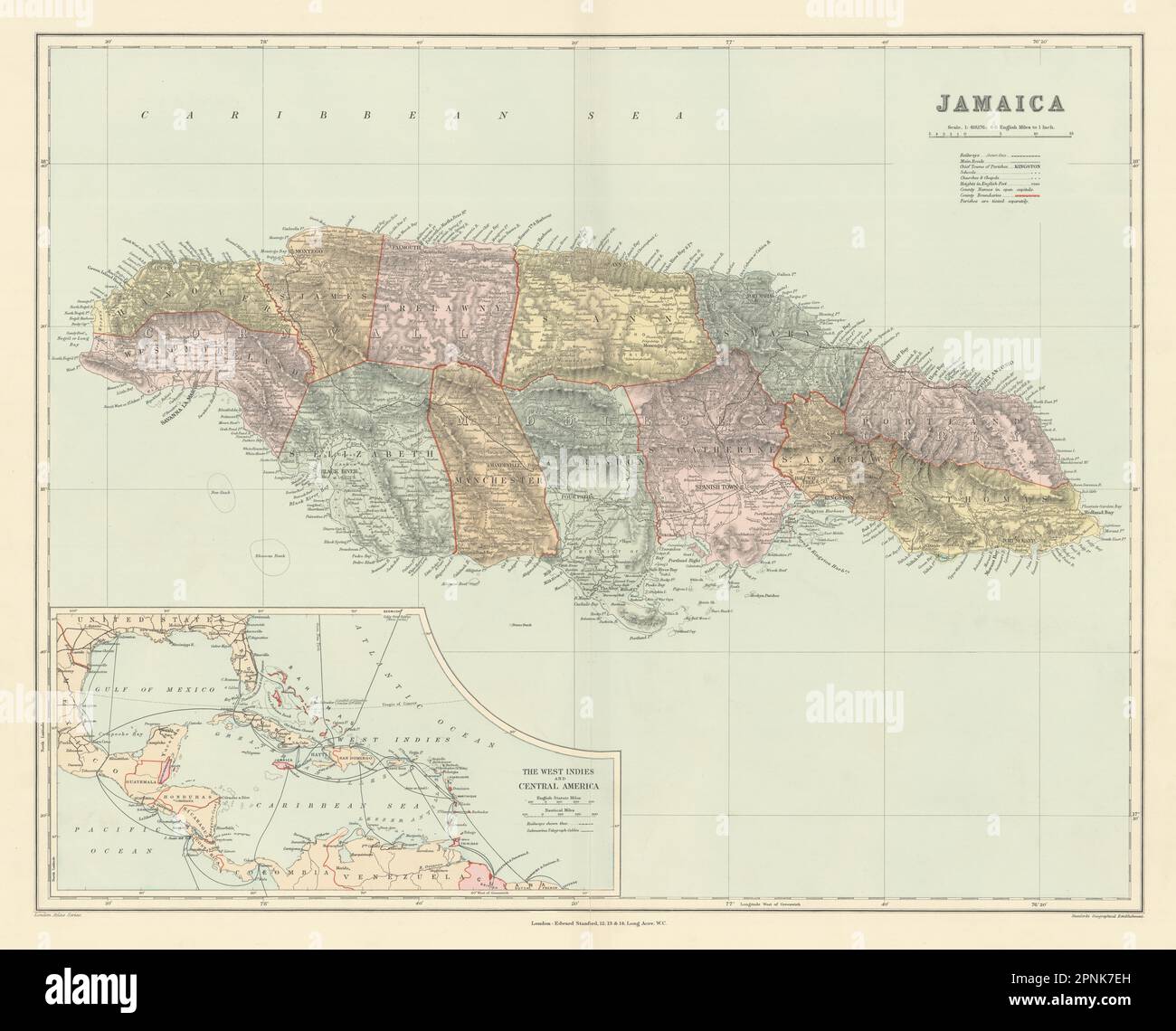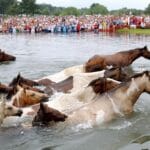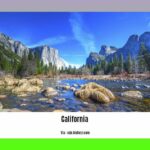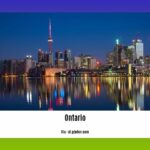Jamaica, a vibrant island nation nestled in the Caribbean, is comprised of 14 distinct parishes, each offering a unique blend of culture, history, and breathtaking natural beauty. These parishes are grouped into three historical counties—Cornwall, Middlesex, and Surrey—a system established during British rule in the mid-17th century and maintained after independence in 1962. This article focuses on the western parishes, located within Cornwall County, a region brimming with hidden treasures and fascinating tales, making it a must-visit for any traveler. Each of Jamaica’s 14 parishes boasts a unique coastline, offering diverse landscapes and experiences for visitors. While Jamaica has 14 parishes, it only contains three official cities: Kingston (the capital), Montego Bay, and Portmore.
Exploring Cornwall County’s Gems
Let’s embark on a journey through Cornwall County, home to three parishes that capture the essence of Jamaica: St. James, Hanover, and Westmoreland.
Montego Bay: The Vibrant Heart of St. James
Montego Bay, the capital of St. James, is a pulsating city offering a diverse range of experiences. History buffs can explore the remnants of beautiful colonial architecture, while shoppers can hunt for duty-free bargains. As the sun sets, Montego Bay transforms, revealing a vibrant nightlife. Beyond the city’s energetic atmosphere lies the Cockpit Country, a rugged landscape of hidden caves and verdant forests, perfect for adventurers. Some historians suggest that this terrain played a crucial role in Jamaica’s fight for independence, providing refuge for the Maroons.
Hanover: Tranquility and Coastal Charms
Hanover offers a serene escape from the hustle and bustle. Imagine pristine beaches, crystal-clear waters ideal for diving, and an overall laid-back ambiance. Lucea Harbour is a perfect spot to bask in the sun or take a refreshing dip in the ocean. For the more active traveler, hiking through the majestic Blue Mountains or exploring the historic town of Green Island offers captivating experiences. There’s a growing theory that Hanover may have been home to some of the earliest Taino settlements. Ongoing archaeological digs are uncovering artifacts that may support this intriguing possibility.
Westmoreland: A Glimpse into Jamaica’s Heritage
Westmoreland provides a rich taste of Jamaica’s agricultural heritage. Rolling green hills and fertile plains, a landscape that has nurtured generations, define this parish. Savanna-la-Mar, the main market town, pulsates with authentic Jamaican life. Music enthusiasts should visit the Peter Tosh Museum, honoring the legendary reggae artist. If your visit coincides with the Jonkanoo festival, you’ll witness an explosion of color, music, and traditional dance.
Jamaica’s Parish System: A Deeper Look
Jamaica, that vibrant island nation in the Caribbean, is made up of 14 distinct parishes. Think of them like individual states or counties, each with its own unique personality, history, and charm. Let’s delve into a few more parishes beyond Cornwall County to understand the breadth of Jamaica’s offerings.
St. Elizabeth: Land of Contrasts
St. Elizabeth, the largest parish in Jamaica, offers striking contrasts. The rugged coastline around Black River juxtaposes the lush interior of the Cockpit Country. Add to this the majestic YS Falls, cascading through a jungle paradise, and you have a parish brimming with natural wonders. Some geologists believe that the unique geological formations in St. Elizabeth may suggest ancient volcanic activity.
Trelawny: Adventure and Relaxation
Trelawny is perhaps most famous for Dunn’s River Falls, one of Jamaica’s most iconic natural wonders. Climbing the falls is a memorable experience. The Green Grotto Caves offer a glimpse into the island’s subterranean world. Trelawny also boasts beautiful beaches for relaxation. Falmouth, the historic port town, showcases well-preserved Georgian architecture and a captivating maritime past. Current research suggests that Falmouth played a key role in the sugar trade, and ongoing excavations continually reveal new information about this period. Embark on a linguistic journey with the Oklahoma tribe crossword to unravel the intricacies of the Native American culture.
Jamaica’s Parish Tapestry
| Parish | Key Attractions | Vibe |
|---|---|---|
| Montego Bay (St. James) | Colonial architecture, nightlife, Cockpit Country | Bustling, vibrant |
| Hanover | Pristine beaches, Lucea Harbour, Blue Mountains | Laid-back, tranquil |
| Westmoreland | Savanna-la-Mar, Peter Tosh Museum, Jonkanoo Festival | Cultural, historic |
| St. Elizabeth | Black River, Cockpit Country, YS Falls | Diverse, natural beauty |
| Trelawny | Dunn’s River Falls, Green Grotto Caves, Falmouth | Adventure, relaxation |
Each parish offers a unique blend of history, culture, and natural beauty waiting to be explored. Explore the rich history of ancient Roman coinage by delving into the world of the neo Roman triumvirate coin.
Understanding Jamaica’s Economic Landscape
While pinpointing the absolute “richest” parish is difficult due to data limitations, factors like tourism, agriculture, and industry provide insights. Kingston, the capital, and St. James, the tourism hub, often top the list. However, economic activity varies across parishes. Tourism fuels coastal areas, while agriculture and bauxite mining contribute significantly to others. It’s crucial to remember that wealth isn’t solely monetary. Education, healthcare, and infrastructure contribute to a parish’s overall well-being.
Jamaica’s Largest Parishes: A Geographical Perspective
St. Ann, St. Elizabeth, and Clarendon are Jamaica’s largest parishes by land area. St. Ann, the “Garden Parish,” is known for lush vegetation and tourism in Ocho Rios. St. Elizabeth boasts diverse landscapes, from the Black River to the Cockpit Country. Clarendon, on the south-central coast, is an agricultural center. Understanding parish size helps with travel planning and appreciating the diverse experiences Jamaica offers. It also highlights the importance of land use, environmental considerations, and economic activities within these regions.
The 14 Parishes and 3 Counties: A Historical Overview
Jamaica’s 14 parishes were formalized in 1867, a system rooted in British colonial rule. While the three historical counties (Cornwall, Middlesex, and Surrey) no longer hold administrative power, they remain culturally significant. Every parish in Jamaica has a coastline, offering unique coastal experiences. This system, retained post-independence, reflects Jamaica’s rich and complex history.
This comprehensive guide aims to equip you with the knowledge to explore Jamaica’s western parishes and beyond. It’s important to note that our understanding of Jamaica’s history and economy is constantly evolving. Ongoing research continues to reveal new insights. Embrace the opportunity to discover your own piece of paradise within this captivating island nation.
















